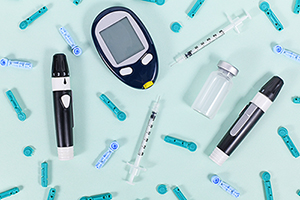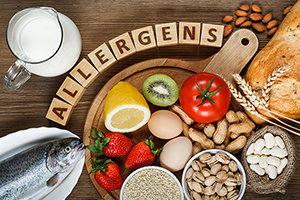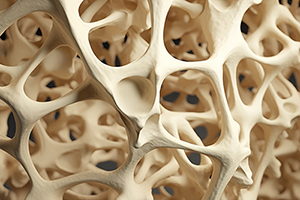



| By Dr. Ronald Hoffman

In keeping with an Intelligent Medicine tradition, as the year draws to a close, I offer you a compendium of the worst health news stories of 2022. It’s kind of like the late Mr. Blackwell’s list of the year’s Worst-Dressed Women. These stories distinguish themselves by their preposterousness, their unabashed ignorance of the true principles of science, by the damage they inflict on the public’s well-being, and/or by their conformity to a pre-determined false narrative. And yes, it’s been a bad year for health journalism. Can’t mainstream media do its homework for a change?
I’ve been kept really busy in 2022 trying to set the record straight on these and other misleading stories; following are but some of the most egregious examples:
1. Nose Picking Could Increase Risk for Alzheimer’s and Dementia: (Neuroscience News) This click-bait headline was generated after a mouse study showed that inoculating Chlamydia pneumoniae bacteria into the noses of mice could increase their risk of amyloid deposits in their brains. C. pneumoniae is a common pathogen in humans—the majority of people have acquired it by the time they reach 60. And there’s scant evidence that nose-picking causes it to travel up the olfactory nerve to affect human brains. There are better reasons to eschew nose-picking—like avoidance of flu and Covid.
2. “Breakthrough” Alzheimer’s drugs: Headlines were abuzz this year over potential Alzheimer’s “cures”. A drug called aducanumab was approved despite concerns over its effectiveness, its tendency to cause brain bleeding and swelling, and its astronomical cost ($56,000/year). A second drug, lecanemab, is being fast-tracked for approval after it showed modest protection against progressive cognitive decline, but also with scary side effects. This despite evidence that the “amyloid hypothesis” on which the success of this category of drugs is predicated, is deeply flawed.
3. Sugar intake does not contribute to metabolic syndrome or diabetes risk: The study on which this conclusion is based is spurious because it is based on notoriously-unreliable dietary recall by participants—most individuals drastically underestimate their consumption of sugar. It’s an observational study—and the only way to prove causation is via a well-controlled prospective study of long duration. And it doesn’t measure insulin, heightened levels of which are a more sensitive predictor of future blood sugar dysregulation. Unfortunately, while the authors claim no conflicts of interest from industry sponsorship, the study is likely to be invoked by food and beverage companies to justify “moderate intake” of sugar-laden processed foods and drinks.
4. Congressman’s wife dies after consumption of unregulated herbal remedy: It was said that Laurie McClintock died after ingesting a white mulberry leaf supplement. This predictably prompted calls for draconian oversight of the supplement industry—a fond objective of regulators and their legislative and media enablers. But the facts of the case are murky, and a comprehensive search on the toxicology of mulberry leaf reveals scant evidence that it could have been the culprit in this tragedy.
5. Dietary supplements: Underregulated, unknown and maybe unsafe: (American Medical Association) This year continued the drumbeat of calls for more strict regulation of supplements. Fortunately, the onerous Dietary Supplement Listing Act—uncritically applauded by the AMA—deceptively tacked on to an omnibus appropriations act this year, did not pass, thanks to a coalition of natural health groups.
6. Unvaccinated 97 times more likely to die of Covid than those with boosters: This deceptive claim was made by President Biden this year. I broke down the fallacious logic behind it in an article at the time. Put another way, using the data in this study, 10,417 individuals would have to undergo vaccination and boosting to save one life. And now, months later, we’re seeing that boosting isn’t the stop-gap it was once touted to be, and comes at the price of serious—albeit uncommon—side effects.
7. Plant-based meals for New York City hospital patients: New York mayor Eric Adams—himself a vegetarian—proudly announced vegetarian meals as a default option for patients. One can argue the merits of plant-based diets for disease prevention, but when it comes to hospitalized patients, who are nutritionally-challenged, it’s bad medicine. At that time, I wrote: “Applying a prevention model to hospital food is a terrible miscalculation . . . for many hospitalized patients a vegetarian diet would prove an unmitigated disaster.”
For those of you observing winter holidays this week, the Intelligent Medicine team and I wish you peaceful and joyous celebrations, and thank you for being a part of our audience!
Stay tuned for next week, when I’ll be sharing seven more of the worst health stories of 2022!
Though we think of declining estrogen as the hallmark of menopause, it's actually common for…

Up to 12 percent of Americans have ulcers at some point in life. Peptic ulcers…
Gallbladder disease is a modern illness. An estimated 20 million Americans have gallbladder disease. The…

We’re doing ourselves in. By every metric, the U.S. is spending far more per capita…

Q: I’ve eliminated my food allergy foods for a period of six months on the…

A recent TV ad for a new expensive osteoporosis drug, Evenity®, seeks to create the…

Q&A with Leyla, Part 1: Cancer Screening

Our virtual voicemail is open 24/7, so there's no need to wait to submit your questions for Dr. Hoffman. Leave a message, and you may hear your question featured on the Intelligent Medicine radio program!